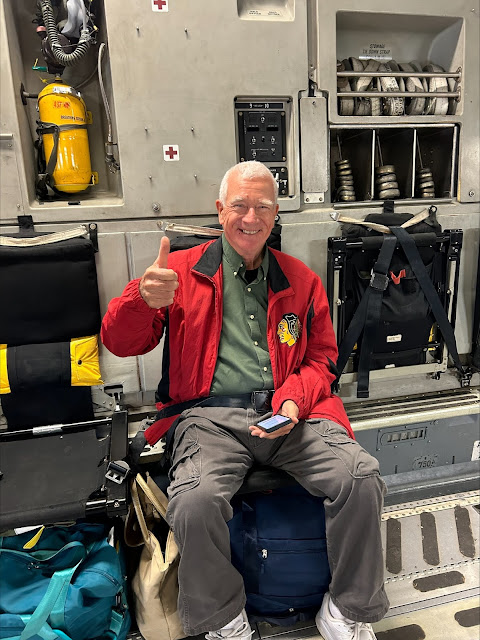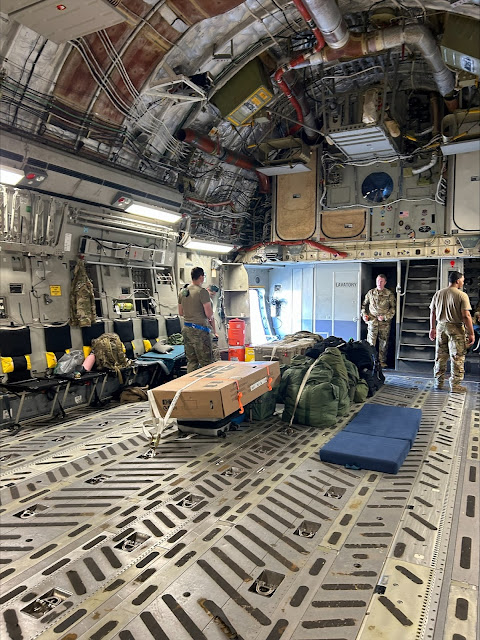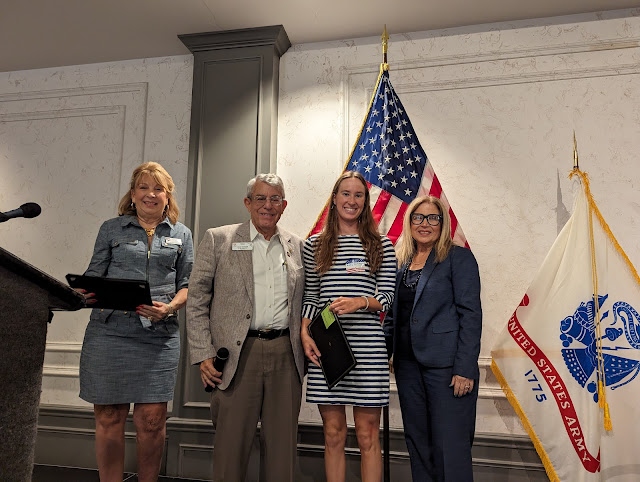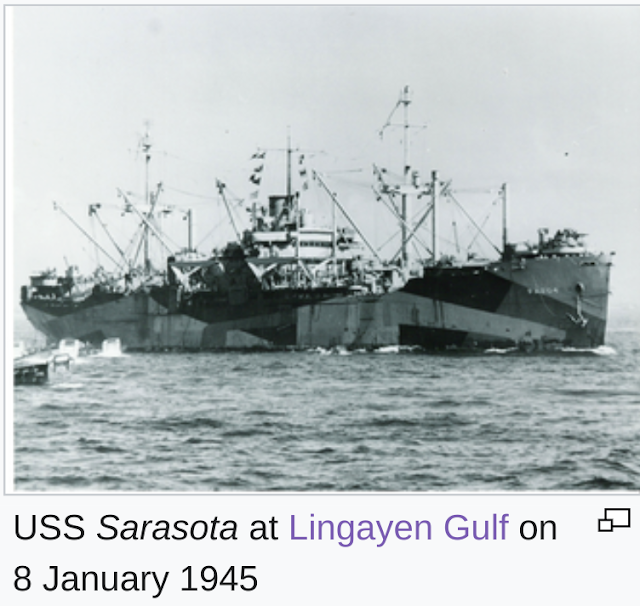Woz and Linda Return to Base C-17 Rota, Spain to Charlotte, North Carolina
JROTC Award Ceremony at Sarasota Military Academy on 9 May 2024
Art Hillman and Bill Lawyer attended the JROTC award ceremony at Sarasota Military Academy on 9 May 2024. We presented two outstanding cadet awards plus two scholarship awards.
Scholarship Luncheon May 8, 2024
Click to read the article in The Observer
Click for more photos Scholarship Luncheon Photos:
https://photos.app.goo.gl/
https://photosmoaa.blogspot.com/
Choral Artists of Sarasota - Memorial Day Concert
Memorial Day Concert: United We Stand
Click for more information
https://choralartistssarasota.org/
MOAS American Victory Ship Tour in Tampa May 3, 2024
SS American Victory
Click for more photos
https://photos.app.goo.gl/vZaQXadHeVhDJpr4A
Victory ships and Libery ships were mass produced very quickly for World War II. Liberty sthips were produced first. Victory ships were faster and larger than Liberty ships.
More about the Victory Ship in Tampa at
https://www.americanvictory.org/
The USS Sarasota was a Victory ship.
https://en.wikipedia.org/wiki/USS_Sarasota
Of the 531 Victory ships constructed, three Victory ships (Logan, Hobbs, and Canada) were sunk during World War II, all by kamikazes during the invasion of Okinawa. These Victorys carried a total of 24,000 tons of ammunition (54 million pounds or 24,000 metric tons), including the majority of 81 mm mortar available in the United States.
How many Libery ships were sunk in WW2?
SS Stephen Hopkins was a United States Merchant Marine Liberty ship that served in World War II. She was the only US merchant vessel to sink a German surface combatant during the war.
She was built at the Permanente Metals Corporation (Kaiser) shipyards in Richmond, California. Her namesake was Stephen Hopkins, a Founding Father and signer of the Declaration of Independence from Rhode Island.[2] She was operated by Luckenbach Steamship Company under charter with the Maritime Commission and War Shipping Administration.
She completed her first cargo run, but never made it home. On September 27, 1942, en route from Cape Town to Surinam, she encountered the heavily armed German commerce raider Stier and her tender Tannenfels. Because of fog, the ships were only 2 miles (3.2 km) apart when they sighted each other.[2]
Ordered to stop, Stephen Hopkins refused to surrender, and Stier opened fire. Although greatly outgunned, the crew of Stephen Hopkins fought back, replacing the Armed Guard crew of the ship's lone 4-inch (102 mm) gun with volunteers as they fell. The fight was fierce and short, and by its end both ships were wrecks.[2]
Stephen Hopkins sank at 10:00. Stier, too heavily damaged to continue her voyage, was scuttled by its crew less than two hours later. Most of the crew of Stephen Hopkins died, including Captain Paul Buck. The 15 survivors drifted on a lifeboat for a month before reaching shore in Brazil.[2]
Captain Buck was posthumously awarded the Merchant Marine Distinguished Service Medal for his actions.[3] So was US Merchant Marine Academy cadet Edwin Joseph O'Hara, who single-handedly fired the last shots from the ship's 4-inch gun.[4] Navy reservist Lt. (j.g.) Kenneth Martin Willett, commander of the Armed Guard detachment which manned the ship's 4-inch gun, was posthumously awarded the Navy Cross.[5]
During World War II, nearly 250,000 civilian merchant mariners served as part of the U.S. military, transporting supplies and personnel. Between 1939 and 1945, 9,521 merchant mariners died, a per capita casualty rate greater than those of each U.S. Armed Forces branch.[15] The GI Bill Improvement Act Of 1977 P.L. 95-202, granted veteran status to Women Airforce Service Pilots and "any person in any other similarly situated group" with jurisdiction granted to the Secretary of Defense, and delegated to the Secretary of the Air Force.[16] Merchant mariners who served in World War II were denied such veterans recognition until 1987 when a federal court ordered it. The Court held that the Secretary of the Air Force wrongfully denied active military service recognition to American merchant mariners who participated in World War II.






















































